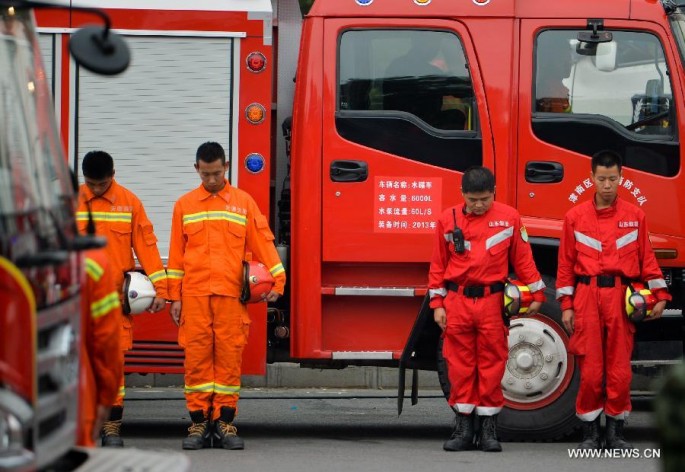Each family of the firefighters who died during the Tianjin blasts will be granted 2.3 million yuan ($360,669) in compensation, the Beijing News reported late Wednesday quoting the firefighters’ relatives.
As of Thursday, a total of 164 people were killed in the explosions that rocked the northeastern Chinese port city on Aug. 12, of which 97 are firefighters. Nine people are still missing.
Of the 2.3 million yuan, 940,000 yuan is a "martyrdom payment," while the remaining amount is 30 times the average annual urban salary for lost income due to death, according to Yahoo! News. The standard compensation for accident victims in China is 20 times the average salary.
The firefighters were posthumously accepted as martyrs and a monument will be built on the blast site in memory of those who died in the accident, Tianjin officials announced on Friday.
A 24-hectare park will also be built on the site of the blasts, with the monument given pride of place, according to the Binhua New Area Planning and Land Resources Administration.
Aside from the pensions granted to the fallen firefighters' families, the government revealed plans to compensate the residents whose houses were damaged by the explosions.
Officials from Tianjin's Binhai New Area, where the blasts occurred, said that the repurchase price for the damaged houses will be 1.3 times higher than the house prices at which the residents purchased their homes.
The announcements come after questions were raised over whether poor training of the firefighters may have contributed to the detonations.
Reports said that emergency workers responding to the initial blaze at a warehouse storing hazardous chemicals could have sprayed water over calcium carbide, which was listed as being stored at the site. The chemical reacts with water to produce highly combustible acetylene gas.
Critics also pointed out that nearly all of China's firefighters are contract workers who receive limited training, provoking growing public concern over the skill and capabilities of the country's emergency response services.



























